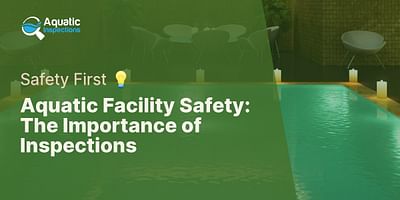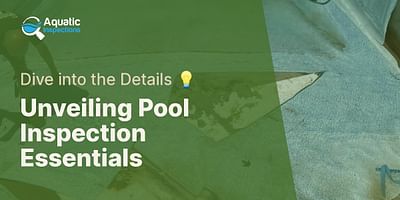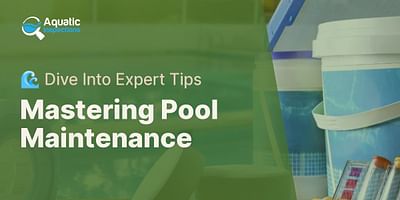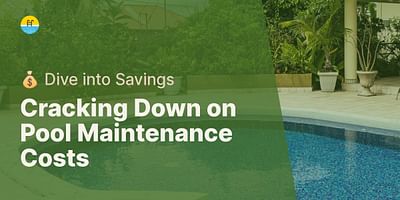Samantha Pooler is a seasoned pool installation expert with a decade of experience. She specializes in designing and installing custom pools for residential and commercial properties. Samantha is known for her creative designs and commitment to customer satisfaction.
As a pool owner, it's crucial to ensure the safety and functionality of your pool. That's where a pool inspector comes in. A pool inspector is a trained professional who assesses the condition of your pool, identifies potential issues, and provides recommendations for maintenance or repairs. In this answer, I'll discuss the essential qualifications and responsibilities of a pool inspector, so you know what to look for when hiring one.
Qualifications:
When hiring a pool inspector, it's important to consider their qualifications. Look for someone who has the following:
Qualifications to Consider When Hiring a Pool Inspector
| Qualification | Description | Why It's Important | Checklist ✅ |
|---|---|---|---|
| Certification | Certification from a recognized body like the National Swimming Pool Foundation (NSPF). | Ensures the inspector is trained and knowledgeable in pool safety, maintenance, and inspection. | ☑️ |
| Experience | Years of experience in pool inspection and maintenance. | Experienced inspectors are more likely to spot potential issues and provide effective solutions. | ☑️ |
| Insurance | The inspector should have liability insurance. | Protects you from potential costs or damages that may occur during the inspection. | ☑️ |
| References | Positive references from previous clients. | Gives you an idea of the inspector's reliability and quality of work. | ☑️ |
| Specialization | Specialization in different types of pools (e.g., residential, commercial, public). | Ensures the inspector is familiar with the specific requirements and standards of your pool type. | ☑️ |
1. Certification: A reputable pool inspector should be certified by a recognized organization, such as the National Swimming Pool Foundation (NSPF) or the Association of Pool and Spa Professionals (APSP). Certification ensures that the inspector has undergone proper training and has the necessary knowledge and skills to perform inspections.
2. Experience: While certification is important, experience is equally valuable. Look for a pool inspector who has several years of experience in the field. Experienced inspectors have encountered a wide range of pool issues and are better equipped to identify potential problems.
3. Knowledge: A pool inspector should have a thorough understanding of pool systems, equipment, and maintenance practices. They should be familiar with local regulations and safety standards to ensure compliance.
4. Continuing Education: Pool technology and regulations are constantly evolving. A good pool inspector will stay up to date with the latest industry trends and advancements through continuing education courses and workshops.
Pool Maintenance Responsibilities
| Task | Frequency | Tools Needed | Benefits |
|---|---|---|---|
| Water Testing | Weekly | Test Kit | Ensures balanced chemicals 📝 |
| Skimming Debris | Daily | Pool Skimmer | Keeps water clean 💧 |
| Vacuuming Pool | Weekly | Pool Vacuum | Removes dirt and algae 🐚 |
| Checking Pool Filter | Monthly | Manual or Guide | Prevents clogs and ensures efficiency 🛠 |
| Inspecting Pool Equipment | Quarterly | Visual Inspection | Early detection of issues 👀 |
| Winterizing Pool | Yearly | Pool Cover, Antifreeze | Prepares pool for winter 🌨 |
Responsibilities:
Now let's talk about the responsibilities of a pool inspector. When you hire a pool inspector, you can expect them to:
1. Perform a Comprehensive Inspection: A pool inspector will conduct a thorough examination of your pool, including the pool structure, equipment, plumbing, electrical systems, and safety features. They will assess the condition of the pool and identify any potential hazards or areas that require maintenance or repairs.
2. Check Water Quality: Water quality is crucial for the safety and enjoyment of your pool. A pool inspector will test the water for pH levels, chlorine or sanitizer levels, and other chemical balances. They will also check for signs of algae, bacteria, or other contaminants.
3. Identify Safety Hazards: Safety is paramount when it comes to pools. A pool inspector will inspect safety features such as fencing, gates, latches, and alarms to ensure they meet local safety regulations. They will also check for any potential hazards, such as slippery surfaces or sharp edges.
4. Provide Recommendations: After the inspection, a pool inspector will provide you with a detailed report outlining their findings. They will offer recommendations for maintenance, repairs, or upgrades to ensure the safety and longevity of your pool. They may also provide advice on proper pool maintenance practices.
Remember, regular pool inspections are essential to maintain the safety and functionality of your pool. By hiring a qualified and experienced pool inspector, you can have peace of mind knowing that your pool is in good hands.















